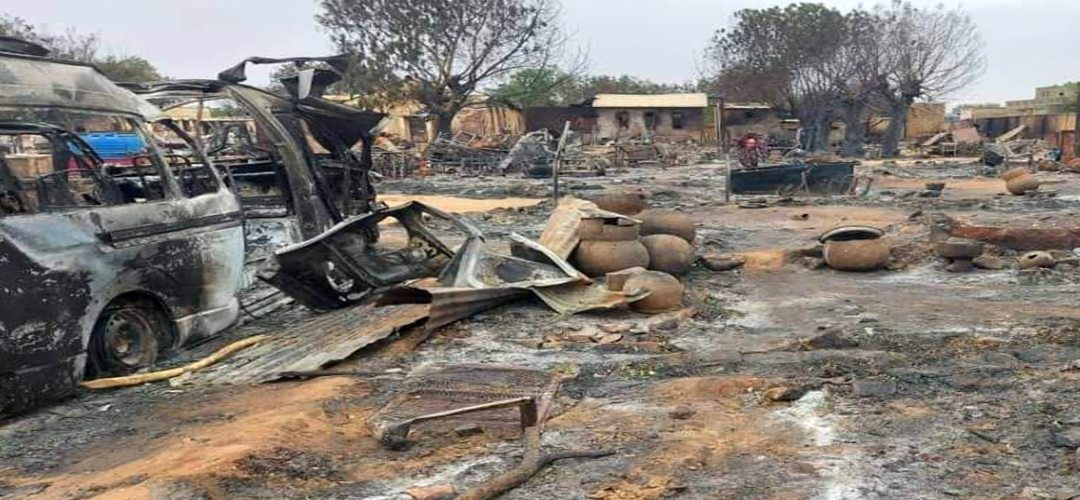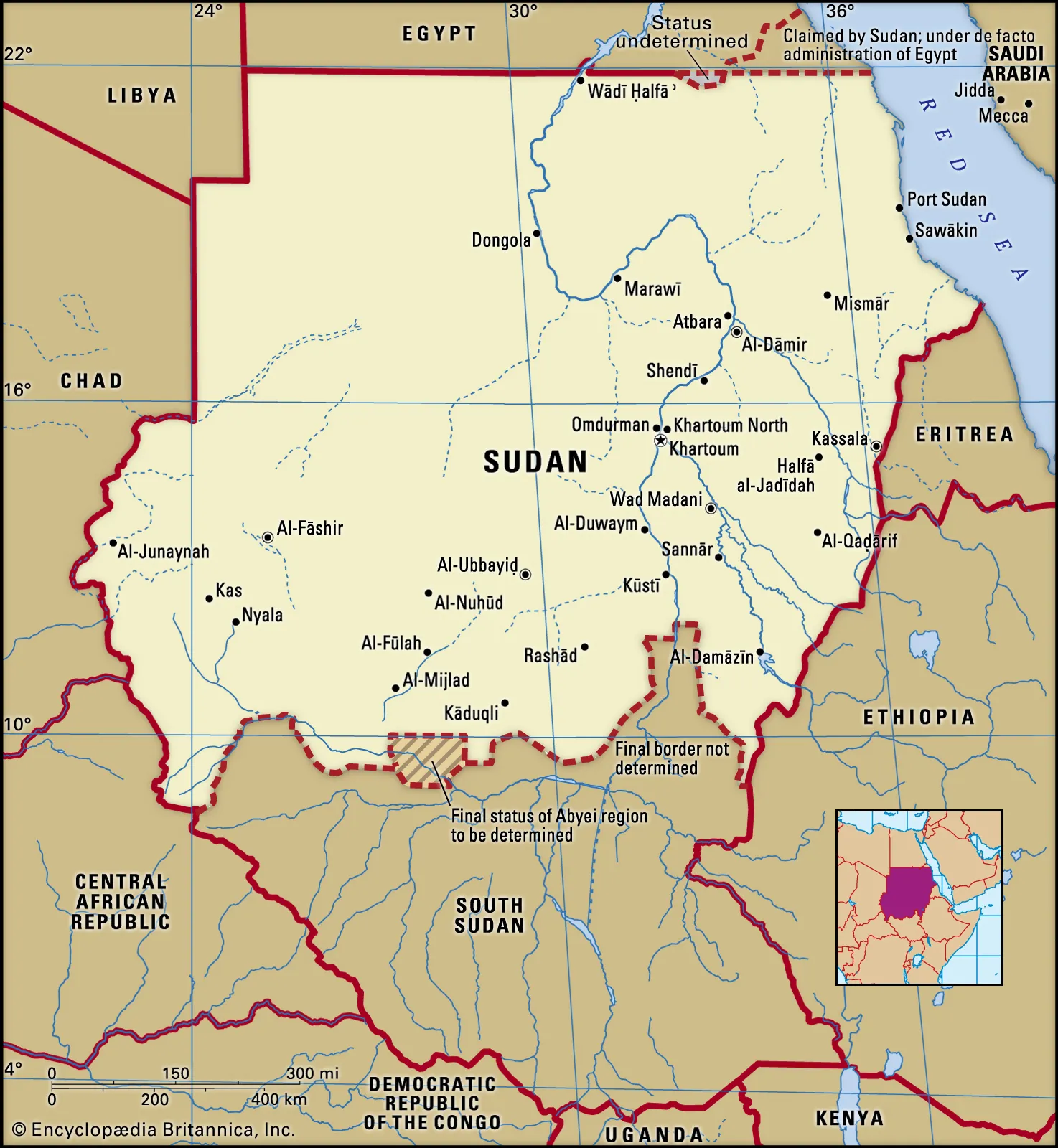The Forgotten War
April 27, 2024 | Expert Insights

The conflict in Sudan, completing a blood-soaked year, has escalated into a major humanitarian crisis. In April 2023, violence erupted as General Abdel Fattah al-Burhan and his military junta clashed with the Rapid Support Forces (RSF), led by his former ally, General Mohamed Hamdan Dagalo, known as Hemedti. This power struggle, primarily over control of Sudan's economic resources and political future, has devastated regions like Darfur and Khartoum, displacing millions and leading to severe human rights abuses. The RSF, evolved from the notorious Janjaweed militia implicated in the Darfur genocide, now contests the military's authority, exacerbating the conflict.
The international community’s lack of engagement and the significant needs on the ground pose a critical test of global humanitarian response capacities, highlighting the urgent need for increased intervention and support.
Background
Initially centred in Khartoum, the violence has swiftly engulfed other regions, including Darfur and Gezira State. It has resulted in catastrophic civilian casualties, widespread displacement, and ethnic violence. These developments have deepened an already acute crisis, shattered the nation's infrastructure, and severely disrupted both governance and daily life.
The human impact of the conflict is profound. More than 15,000 lives have been claimed, with thousands more injured amidst the fighting. The United Nations has sounded alarms over an imminent famine as displacement has reached staggering numbers. Currently, about 8.5 million individuals have been displaced within the country, representing the largest internally displaced population globally. In addition, over 1.4 million people have fled to neighbouring countries such as Chad, South Sudan, and Egypt in search of safety and stability.
Children, particularly vulnerable in conflict settings, are disproportionately suffering. An estimated 3.8 million children face malnutrition, and the situation is so dire that Médecins Sans Frontières reports the death of one child every two hours in relief camps. The educational landscape is also in ruins, with over 10,400 schools no longer operational, leaving 19 million children without access to formal education. Healthcare infrastructure has nearly collapsed under the strain of the conflict, with 70 to 80 per cent of medical facilities in affected areas now non-functional. This breakdown has come at a time when healthcare services are most needed, given the outbreaks of cholera and the prevalence of gender-based violence exacerbating the health crisis for the Sudanese population.
Despite the escalating needs, humanitarian efforts are stymied by continued violence and a lack of adequate international response. Essential services like food, water, and medical care are in critical short supply as organizations such as CARE and MSF navigate the chaotic conditions to assist affected populations. The global community’s insufficient engagement and the minimal media coverage have meant that Sudan’s plight remains largely overlooked, leaving millions of vulnerable individuals in a state of dire need without sufficient support.

Analysis
As the conflict in Sudan continues to ravage through previously untouched regions, the international response remains alarmingly inadequate. The plight of Sudanese citizens, compounded by expanding warfare and relentless displacement, cries out for a more robust global intervention. The hope for stability fades as the war drags on, scattering families and shattering communities.
Despite the escalating urgency, the global community's engagement has been obscure. Critically underfunded, the UN's Humanitarian Response Plan for Sudan received less than half of the required resources by the end of 2023. This financial shortfall significantly restricts the capabilities of humanitarian agencies working on the ground. Essential services such as healthcare, nutrition, and shelter remain desperately underprovided, exacerbating the suffering of those affected by the conflict.
Humanitarian organizations, including CARE, face daunting challenges as they strive to deliver aid amidst the chaos. With insufficient funding and global attention dwindling, these organizations are forced to operate in an environment where basic survival is constantly at risk, and the logistics of delivering aid are increasingly complex. Their efforts to provide relief in areas like South and East Darfur, South Kordofan, Gadarif, and Kassala are hindered by the ongoing violence, which not only endangers aid workers but also interrupts the supply routes necessary for delivering aid.
The dire situation is further aggravated by the international media's scant coverage, which has allowed the Sudanese conflict to slip from the collective consciousness of the global community. This lack of visibility has made it difficult to effectively draw a sustained international focus to address the crisis. As a result, the voices of the Sudanese people, echoing from the depths of despair and urgent need, go largely unheard on the global stage.
Assessment
- The unfolding situation in Sudan requires an urgent and unified response from the global community. It is crucial to mobilize resources and vigorously promote peace efforts. Diplomatic and financial measures must be strengthened to urge all conflict parties towards a ceasefire and address the deepening humanitarian disaster.
- The current crisis in Sudan should not be sidelined in international dialogues. Immediate and dynamic engagement is necessary to alleviate the widespread suffering and to establish a foundation for durable peace and stability within the region. The international community must act decisively and be motivated by ethical and humanitarian imperatives.
- The ongoing conflict in Sudan underscores the dire consequences of global powers' inaction. Failure to act promptly and consistently could irreversibly tarnish the moral standing of the international community.








Comments